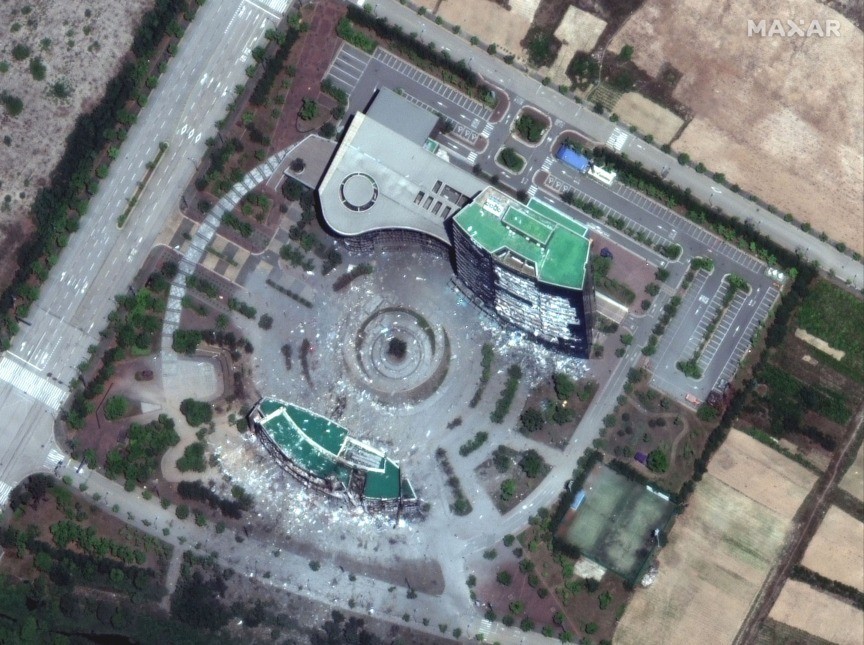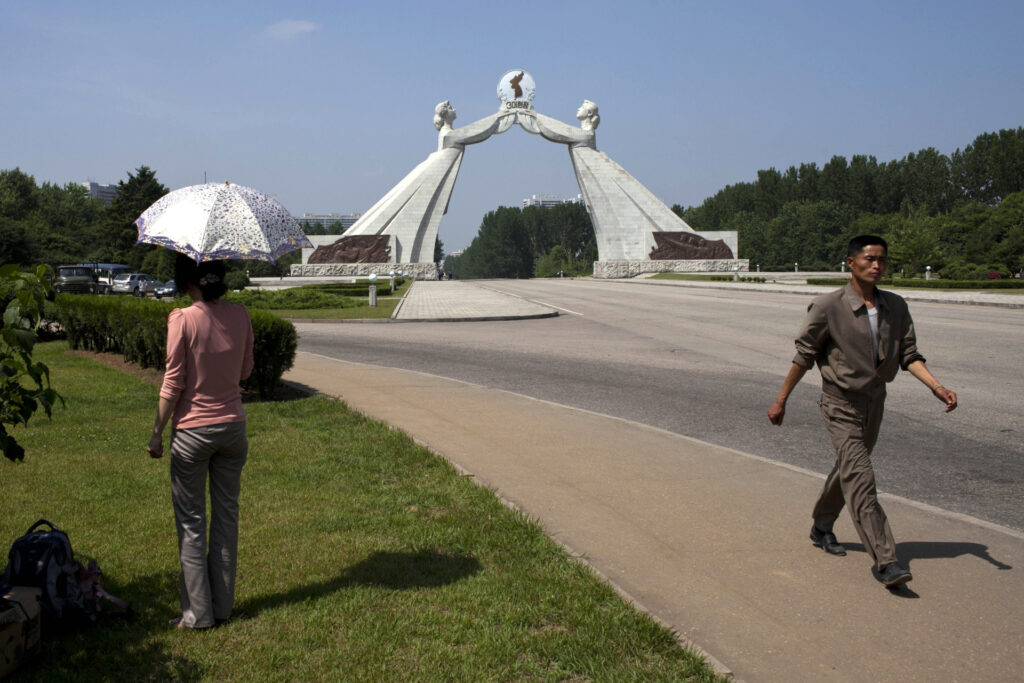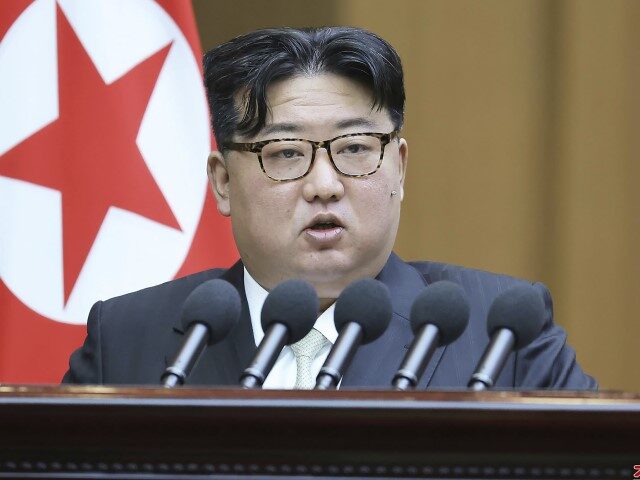North Korean dictator Kim Jong-un on Monday called for the national constitution to be rewritten so that South Korea is named as the “primary foe and invariable principal enemy,” a significant change from past rhetoric that called for reunification with the South.
Kim also abolished several agencies on Monday that were concerned with South Korea relations.
Kim told his rubber-stamp parliament, the Supreme People’s Assembly, that reunification with South Korea has become impossible. He said the South Koreans have become obsessed with undermining his regime and seizing control over the northern half of the peninsula.
Kim demeaned the South Koreans as merely “top-class stooges” of the United States and other foreign powers. He said South Koreans should no longer be described as estranged “countrymen” of North Koreans, and all lines of communication between the two countries should be severed. He effectively ordered the very concept of “reunification” to be stricken from North Korea’s national history.
“It is the final conclusion drawn from the bitter history of the inter-Korean relations that we cannot go along the road of national restoration and reunification together,” he said.
Kim called for the revised constitution to state that in the event of a war, North Korean military forces should be prepared for “completely occupying, subjugating, and reclaiming” every bit of South Korea.
“We don’t want war, but we have no intention of avoiding it,” the dictator said.
The Supreme People’s Assembly agreed that North and South Korea are engaged in an “acute confrontation” and South Korea can no longer be viewed as a diplomatic partner. To that end, the assembly voted to dissolve several agencies, including the Committee for the Peaceful Reunification of the Country, the National Economic Cooperation Bureau, and the International Tourism Administration. Those agencies have not been very active lately, but in the past they were involved in projects such as inter-Korea tourism and the joint factory complex in the border city of Kaesong.

This June 22, 2020, satellite image provided by Maxar Technologies shows an inter-Korean liaison office building after being blown up at a shuttered joint industrial park in Kaesong, North Korea. The North blew up the liaison office building just north of the heavily armed border with South Korea, on June 16, 2020, in a carefully choreographed, largely symbolic display of anger. (Maxar Technologies via AP)
Kim additionally ordered the demolition of a cross-border railroad between North and South Korea and the destruction of a monument to reconciliation in Pyongyang, which he derided as an “eyesore.”
The monument in question is a huge arch called the “Monument to the Three Charters for National Reunification,” constructed over a road from the capital city of Pyongyang to the border called Tongil (“Reunification”) Highway.
Constructed by order of Kim’s father Kim Jong-il in 2001 and symbolically incorporating stones gathered from across the peninsula, the monument depicts two angelic Korean women hoisting a reunified Korea aloft to the heavens. Until now, it has been portrayed as a vital testament to the ideal of peacefully healing Korea’s war wounds, although to be brutally honest, Kim Jong-un’s description of its aesthetic qualities is defensible.

The Three Charters for National Reunification monument, which symbolizes the hope for eventual reunification of the two Koreas, is seen in Pyongyang, North Korea, Saturday, June 15, 2013. (Alexander Yuan/AP)
Various media analysts agreed Kim’s remarks to the Supreme People’s Assembly represented a historic shift in North Korean policy, although opinions on Kim’s motivations varied.
Some analysts thought he was pumping up South Korea and the United States as external threats to distract the public from his policy failures. Others worried he might be conditioning his captive population for an all-out, brutal war against the South, possibly because he feels threatened by international efforts to smother his nuclear missile program.
Kim could also be responding peevishly to the conservative South Korean administration of President Yoon Suk-yeol, which published a defense white paper last year that named North Korea as an “enemy” for the first time in half a decade. Yoon’s left-wing predecessor Moon Jae-in took a more dovish approach and made every effort to court friendship with North Korea, but ended with very little to show for it.
Yoon said on Tuesday he was not intimidated by North Korea’s threats.
“The current Republic of Korea government is different from any previous government. Our military has an overwhelming response capability,” he said. “Should North Korea provoke us, we will punish them multiple times as hard.”
“The conventional disguised peace tactic that threatens with a choice between war and peace will not work anymore. The fake peace that we earn by bowing to threats of provocation will only plunge our security into greater danger,” Yoon said, making a seemingly derisive reference to Moon’s North Korea policy.

COMMENTS
Please let us know if you're having issues with commenting.